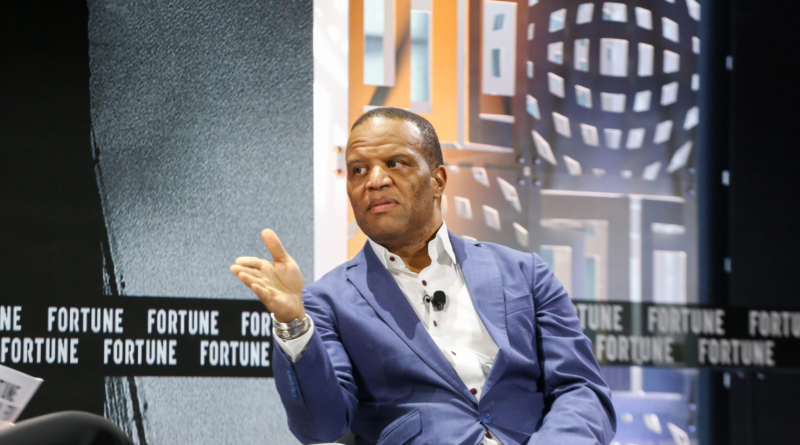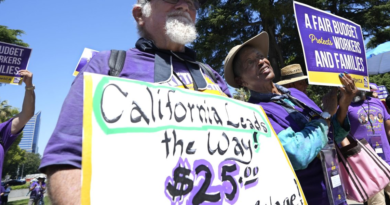DEI efforts are critical to the U.S. economy because ‘there’s not enough white men,’ John Hope Bryant says
As backlash to corporate DEI efforts reaches a fever pitch, one advocate says its success is critical to the U.S. economy because the math for the country’s long-term prosperity doesn’t add up without it.
“There’s not enough white men,” John Hope Bryant, founder and CEO of Operation HOPE, a non-profit that provides financial literacy training, said Tuesday at Fortune’s Global Forum. “Mathematically, there’s not enough college-educated, successful white men to drive GDP for 30 years.”
In order for the U.S. to continue growing and remain the world’s top economy, it can’t afford to cut off women and minority communities from wealth gains.
That reality was overshadowed by the politicization of the term “DEI,” according to Bryant,
“DEI became weaponized,” Bryant said. “It became political, it became emotional… I like math and inclusive economics, which is my approach. It’s just neutral.”
Bryant said the math forced him to reckon with the issue of how the U.S. economy could maintain its current global dominance without ensuring the participation of all its citizens. He pointed to the fact that consumer spending accounts for 70% of the U.S. economy. As the demographics of the country shift, so does the makeup of who those consumers are.
“That 70% is going to look different,” Bryant said.
A report from the U.S. Census Bureau estimates the country will become majority minority, meaning that White Americans will no longer outnumber all other minority groups combined, by 2044. But even now, minority groups have immense purchasing power that is critical to the economy. Black consumers are expected to wield $1.7 trillion in spending power by 2030, according to McKinsey. Meanwhile, Hispanic consumers accounted for $3.2 trillion in economic output in 2021, according to a study from the Latino Donor Collaborative. Bringing those groups onto a level playing field with White Americans, who control 80% of the wealth in the U.S. despite accounting for 65% of the households, was imperative, according to Bryant.
“Financial literacy is the civil-rights issue of this generation,” he said.
The gender wealth gap also poses a vital opportunity for the future of the U.S. Women control $10.9 trillion in assets—a change that was only made possible, Bryant points out, because of changing financial laws in the 1970s when the Equal Credit Opportunity Act allowed women to have their own credit cards and outlawed discriminating against credit applicants on the basis of sex.
“If we had let our small mindedness overtake us, we’d be a third-rate nation today,” Bryant said.
A newsletter for the boldest, brightest leaders:
CEO Daily is your weekday morning dossier on the news, trends, and chatter business leaders need to know.
Sign up here.




